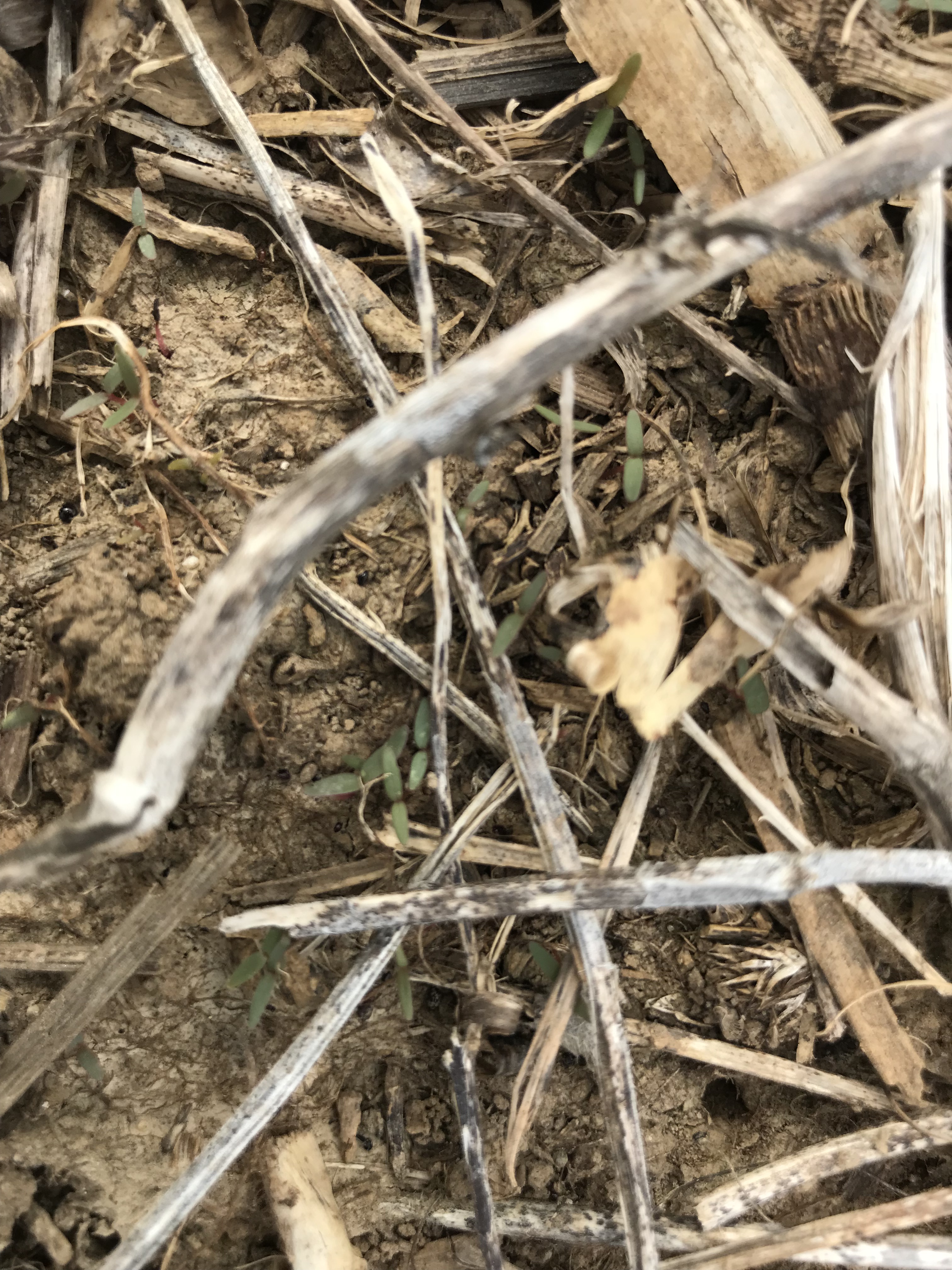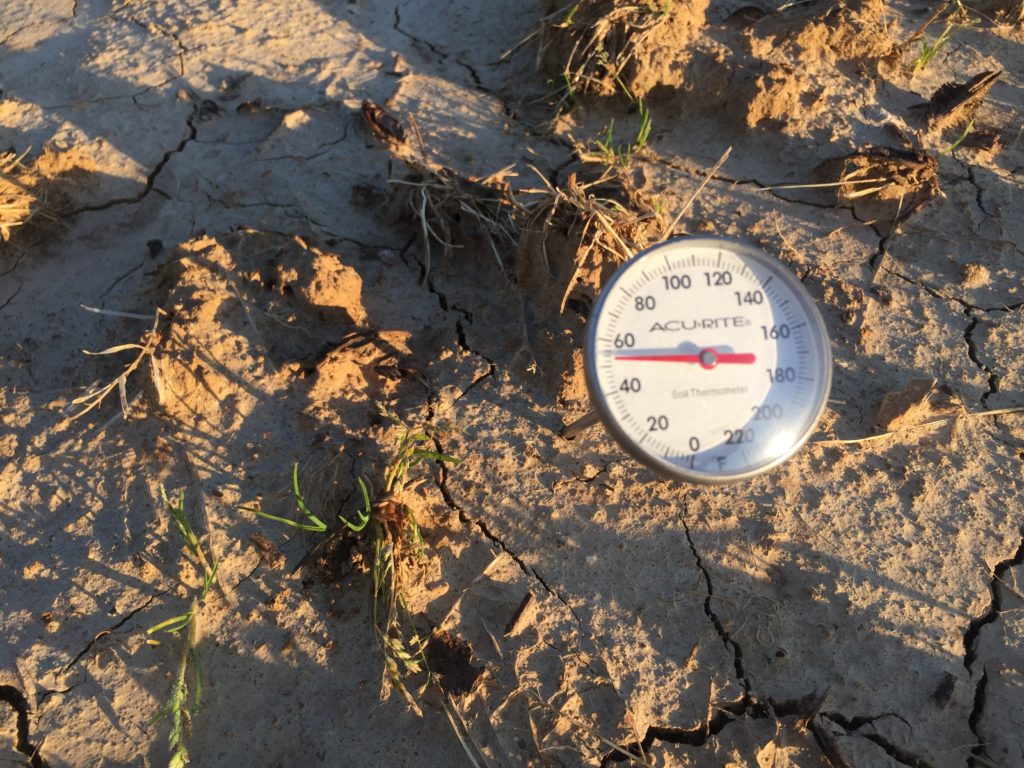
Palmer amaranth started emerging in West Tennessee just over the past few days. The first pigweed I noticed emerging was on April 30. This late emergence is very different from past springs. Continue reading

Palmer amaranth started emerging in West Tennessee just over the past few days. The first pigweed I noticed emerging was on April 30. This late emergence is very different from past springs. Continue reading
 I’ve visited with several over the past few days who either started planting yesterday (4/30), who plan to begin today (5/1), or who will be planting by tomorrow (5/2). While we have a few very early planting-date trials established here in Jackson, none of our large-plot trials have been planted and none of our small-plot work requiring normal planting dates have been planted either. That will change for my program today (5/1). Continue reading
I’ve visited with several over the past few days who either started planting yesterday (4/30), who plan to begin today (5/1), or who will be planting by tomorrow (5/2). While we have a few very early planting-date trials established here in Jackson, none of our large-plot trials have been planted and none of our small-plot work requiring normal planting dates have been planted either. That will change for my program today (5/1). Continue reading
Residual herbicides will play a large role in the success or failure of our weed control program in 2018. Last year a number of folks used Engenia plus Roundup followed by Engenia plus Roundup as needed in soybean. That will lead to failure if not in the short term certainly in the long term. Continue reading
With all the wet cold weather everyone has had to abandon their Plan A cotton burndown program. So what is the Plan B burndown plan with most wanting to plant cotton around May 1? Continue reading
In 2017 and now again in 2018, the lack of horseweed (marestail) in many fields for late March is very notable. So what is the reason/s for the lower landscape level horseweed infestations? Continue reading
As of Monday we have had well over 2400 folks take the dicamba training in Tennessee. Our best estimate is that about 2500 total would be spraying Engenia or XtendiMax in Xtend crops so we are clearly in the short rows for getting applicators trained. If you still lack the dicamba training, contact your county Extension Agent.
Since most are now trained to apply dicamba, questions have arisen on strategies to manage Palmer amaranth in Xtend soybean under two different situations. Continue reading
A survey sponsored by the Tennessee Soybean Promotion was conducted last summer to determine the percentage of fields that harbored PPO-resistant Palmer amaranth in West Tennessee. We found that 83% of the fields tested had Palmer amaranth infestations that survived a field use rate of Flexstar (fomesafen). Recent field research has shown that these populations are also ALS & glyphosate-resistant.
Additionally, some of these multiple-resistant Palmer amaranth populations are proving to be difficult to control with a number of herbicides. So research was conducted to investigate the effectiveness of various herbicides in controlling PPO-resistant (Flexstar-resistant) Palmer amaranth compared to a location where PPO herbicides were still effective on Palmer. Continue reading
Phone calls with questions on wheat weed control have started. Some are asking how to control ALS-resistant (e.g., resistant to Harmony) chickweed. ALS-resistant chickweed is clearly becoming more of a challenge to control in wheat across the state but particularly in middle Tennessee. Other folks have asked about cleaning up just a sundry of different broadleaf weeds like henbit. Fortunately, there are two “new” herbicides that have been recently labeled in wheat that can help on these broadleaf weeds. Continue reading